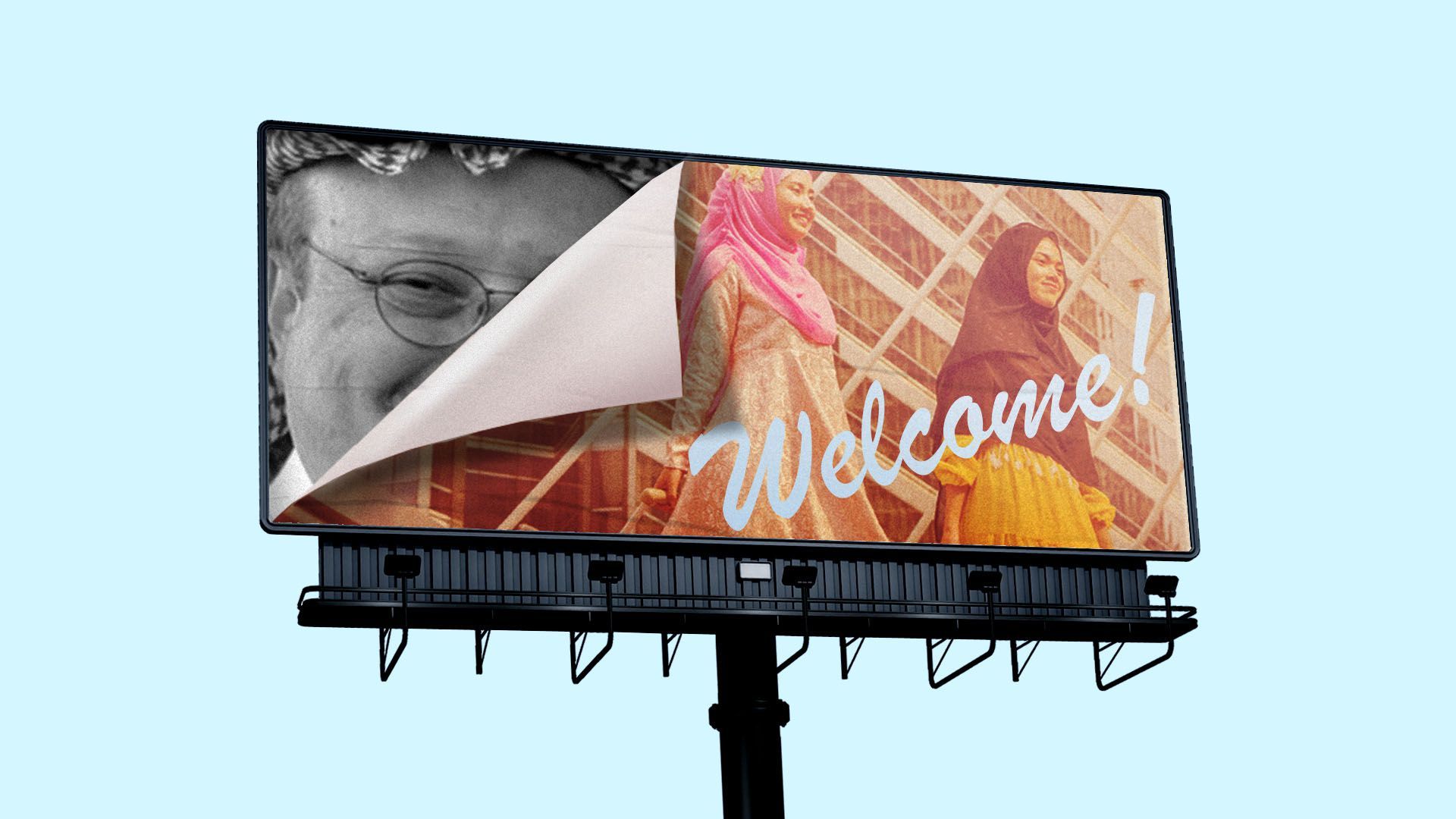U.S. firms carry on with Saudi dealings after sanctions leave MBS unscathed
Add Axios as your preferred source to
see more of our stories on Google.

Illustration: Sarah Grillo/Axios
President Biden recently gave a pass to Saudi Crown Prince Mohammed bin Salman for his role in the 2018 murder of journalist and U.S. resident Jamal Khashoggi. In so doing, he also gave a pass to U.S. companies and investment firms that continue to do business with MBS.
Why it matters: The wheels of capitalism and convenience ran over justice.
Driving the news: The Office of the Director of National Intelligence last week released an unclassified report assessing that MBS approved the operation to "capture or kill" Khashoggi, despite public denials from MBS.
- The White House announced sanctions on numerous individuals and entities implicated in the murder, but not on MBS.
- During a November 2019 Democratic debate, Biden said: "Khashoggi was, in fact, murdered and dismembered, and I believe on the order of the crown prince. And I would make it very clear we were not going to, in fact, sell more weapons to them, we were going to, in fact, make them pay the price and make them, in fact, the pariah that they are."
- No sanctions were placed on the Public Investment Fund, the Saudi sovereign wealth fund controlled by MBS. PIF was not cited in the ODNI report, but documents disclosed in a Canadian court case allege that a PIF portfolio company owned two private jets used by Khashoggi assassins, per CNN.
Big money: PIF, with around $350 billion in assets under management, is a giant player in the U.S. investment markets.
- For example, it's the majority owner of California electric vehicle maker Lucid Motors, and is anchoring a $2.5 billion PIPE for Lucid's record-breaking SPAC deal.
- It's still the third-largest outside shareholder in Uber, and maintains a board seat.
- It's also invested hundreds of millions of dollars into such private companies as Magic Leap, Penske Media and real estate giant The Related Cos. Plus it's an indirect director in many more, via its role as the largest outside investor in SoftBank Vision Fund and The Blackstone Group's infrastructure fund.
It seemed in late 2018 that Khashoggi's murder might cause U.S. firms to back away from PIF, particularly judging by how many CEOs bailed on the so-called "Davos in the Desert" conference. But it seems the courage of their convictions was contingent on political cover they never got, first from former President Trump and now from Biden.
- Many of those conference cancelers returned for this year's virtual event, apparently deciding there's a two-year statute of limitation on murder.
- The head of one large American company with Saudi ties told me prior to the report's release that if the U.S. government put sanctions on PIF, of course the company would comply. Otherwise, he argued, it'll take money from the Saudis, just as it would from any other U.S. ally.
The bottom line, per Axios World editor David Lawler: "Biden decided it was better to preserve a relationship with MBS than send a message by cutting him off. U.S. companies now have license to follow suit."
